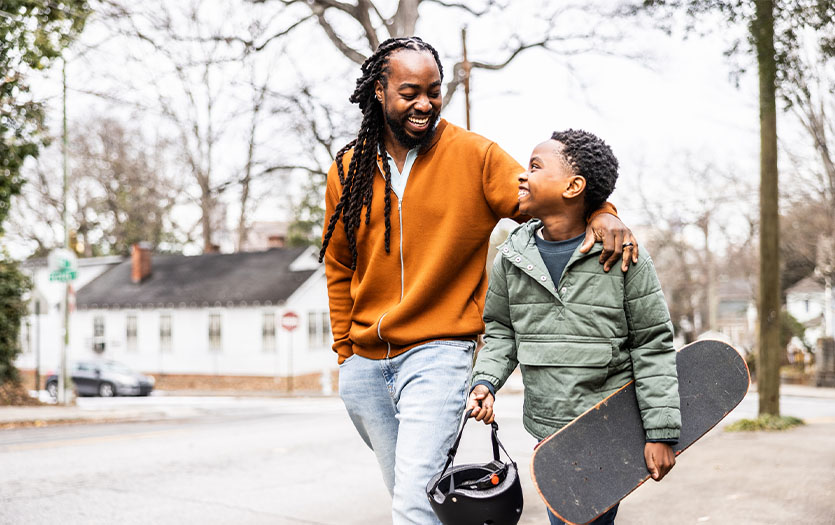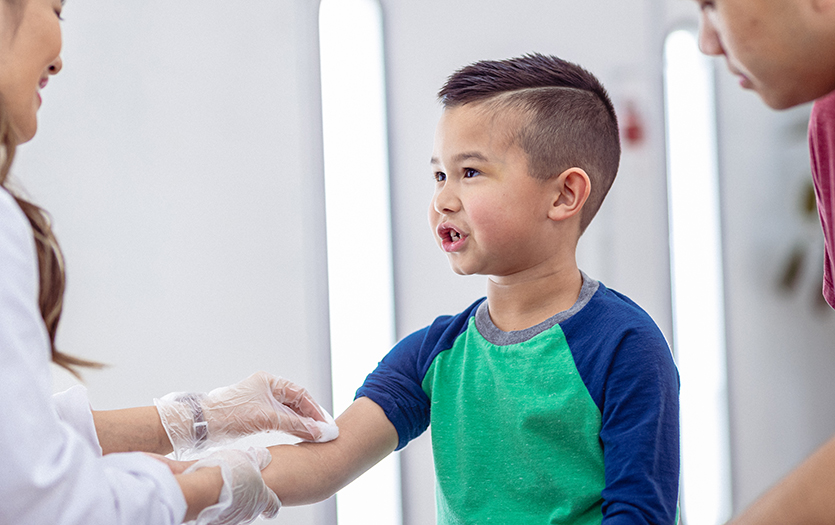
This post was written Marjorie Burns, MSSW, LCSW, dialectical behavioral therapist program supervisor, Parkview Behavioral Health Institute.
Parenting is a word that can be painted with broad strokes, in many colors and textures. It’s an all-encompassing verb that’s not limited to people with children. Parenting happens from teachers to students, adult children to elderly parents and friends to friends. Defining it isn’t a black-and-white concept. Maybe your definition includes teaching right from wrong, or being a support system, or providing food and shelter, or all of this and more.
In the movie “Parenthood,” directed by Ron Howard, the grandma says, “Parenthood is a roller coaster ride that you choose to get on.” The ride elicits fear, excitement, nervousness, laughter and tears. It’s also a commitment to stay on the ride all the way through. For a lifetime. When the most involved parts of it are over, most say all they want is to do it all over again.
When I was asked to write about parenthood, I was excited and quizzical. I saw the topic through generational lenses. From farm days, to war, to post-war, food stamps, layoffs, unemployment, school, losses, grief, healing and spirituality. My mind was racing! How do you give advice on something that’s ever-changing, personal, complicated? Basically, you don’t. You just invite others to join the ride.
Collaboration
Parenting is learning by doing and very situational. There are many ways to parent, but the best teacher is trial by error. It’s mindfulness, and tuning into what a child needs, as opposed to what you think they need. It’s not about trying to solve everything for them but letting them have the room to screw up and learn from it. To be there for them instead of fixing everything and listening to them if they need it rather than telling them what to do. To allow them to express their creativity and their own ways of doing things rather than what you deem to be the “right way.”
There are times as parents we will need to offer correction if they need a redirection, but it’s important to do so in a supportive way and to listen to what they have to say. Parenting isn’t rocket science, and it isn’t an exact science, either. It’s a collaboration.
Communication and discovery
One goal of parenting is to help our loved one become fully developed into themselves and to embrace their special talents and gifts. We guide, shape and encourage a fluid movement of discovery. It’s like watching a baby discover their toes or a toddler finding a lightening bug. We all do this differently, based on our personal background, family history and makeup. As a partner in these growth experiences, our responsibility is to observe, encourage, redirect or provide a firm no.
Communication is key to parenting. I tell people to be truthful not harsh, maintain consistency and be flexible, and view errors as opportunities for growth and change.
Soothe and embrace time together
Practice quality time and have quality time for yourself. You are teaching problem solving skills, processing information and learning how to ask for help, whether you are a child or the parent.
Some soothing techniques I enjoy are reading to my kids, holding and singing to them (my favorite is “You Are My Sunshine”) and cooking with them. Our great holiday baking has grown with each generation, and now it’s a contest for the best cookies, cream puffs and chili.
Ask for help from other parents, church groups, agencies and mental health providers. I often recommend books by Dr. Dobson and Marsha Linehan, and Stephen Covey.
Remembering gratitude
This blog was a blessing. It gave me an opportunity to ask my loved ones their thoughts about parenting, which led to shared laughter, tears, and recollections. Over a meal, I was able to see four generations revisit their hopes, dreams, sorrows, worries and joy. I encourage you to invite your loved ones to define parenting.
Remember, you are shaping the world and the future. Enjoy the ride.
Resources
If you’re struggling with your mental health and finding it difficult to give your best self to your family, Parkview Behavioral Health Institute is here to help. Call the PBHI HelpLine at 260-471-9440 or toll free at 800-284-8439, anytime 24 hours a day. Our experienced specialists can answer your questions, provide recommendations and help arrange care.

.jpg)

